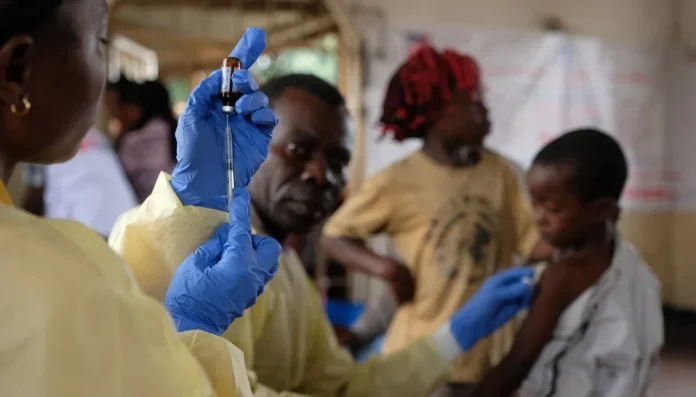Global measles cases rise by 20% in 2023, with over 10 million people infected, according to a new report from the World Health Organization (WHO) and the US Centers for Disease Control and Prevention (CDC). This surge highlights ongoing issues with inadequate immunization coverage.
The report estimates that 10.3 million measles cases are recorded globally in 2023, and around 107,500 people die from the disease, with children under five being the most affected.
Immunization Gaps Contribute to the Increase
Measles, a highly contagious viral disease, is preventable through two doses of the measles vaccine. However, more than 22 million children miss their first dose of the vaccine in 2023, which contributes to the rise in cases. The data shows that 83% of children receive their first dose, while only 74% receive the recommended second dose. This falls short of the 95% coverage needed to prevent outbreaks.
WHO Director-General, Dr. Tedros Adhanom Ghebreyesus, stresses the importance of improving immunization efforts: “The measles vaccine has saved more lives than any other vaccine over the past 50 years. To protect the most vulnerable, we must invest in immunization for everyone, regardless of where they live.”
CDC Director, Mandy Cohen, also highlights the global rise in infections and emphasizes that the measles vaccine remains the best defense against the virus, urging continued investment in vaccination initiatives to increase access.
Widespread Outbreaks Around the World
Due to gaps in vaccination coverage, 57 countries experience significant or large measles outbreaks in 2023, a 60% increase from the previous year. All regions, except for the Americas, see disruptions, with nearly half of these outbreaks occurring in African countries.
Measles continues to cause high mortality rates, with 107,500 deaths in 2023, primarily among children under five. While this marks an 8% decrease from 2022, health experts warn that far too many children are still dying from this preventable disease. The slight reduction in deaths is attributed to better health and nutrition in regions where outbreaks have occurred.
Threat to Global Elimination Goals
The increase in measles cases threatens global efforts to eliminate the disease, as outlined in the Immunization Agenda 2030. By the end of 2023, 82 countries have achieved or maintained measles elimination. Brazil is reverified as measles-free, making the WHO Americas Region once again free of endemic measles. However, at least one country in every WHO region, except Africa, has successfully eliminated the disease.
WHO and CDC call for urgent, targeted vaccination campaigns, particularly in Africa, the Eastern Mediterranean, and other vulnerable regions affected by conflict and instability. The agencies emphasize the need for high-performing immunization programs and effective, high-coverage vaccination campaigns to ensure all children receive two doses of the measles vaccine.
“Achieving and maintaining high immunization rates is essential to stopping the spread of this preventable and deadly disease,” the report concludes.













